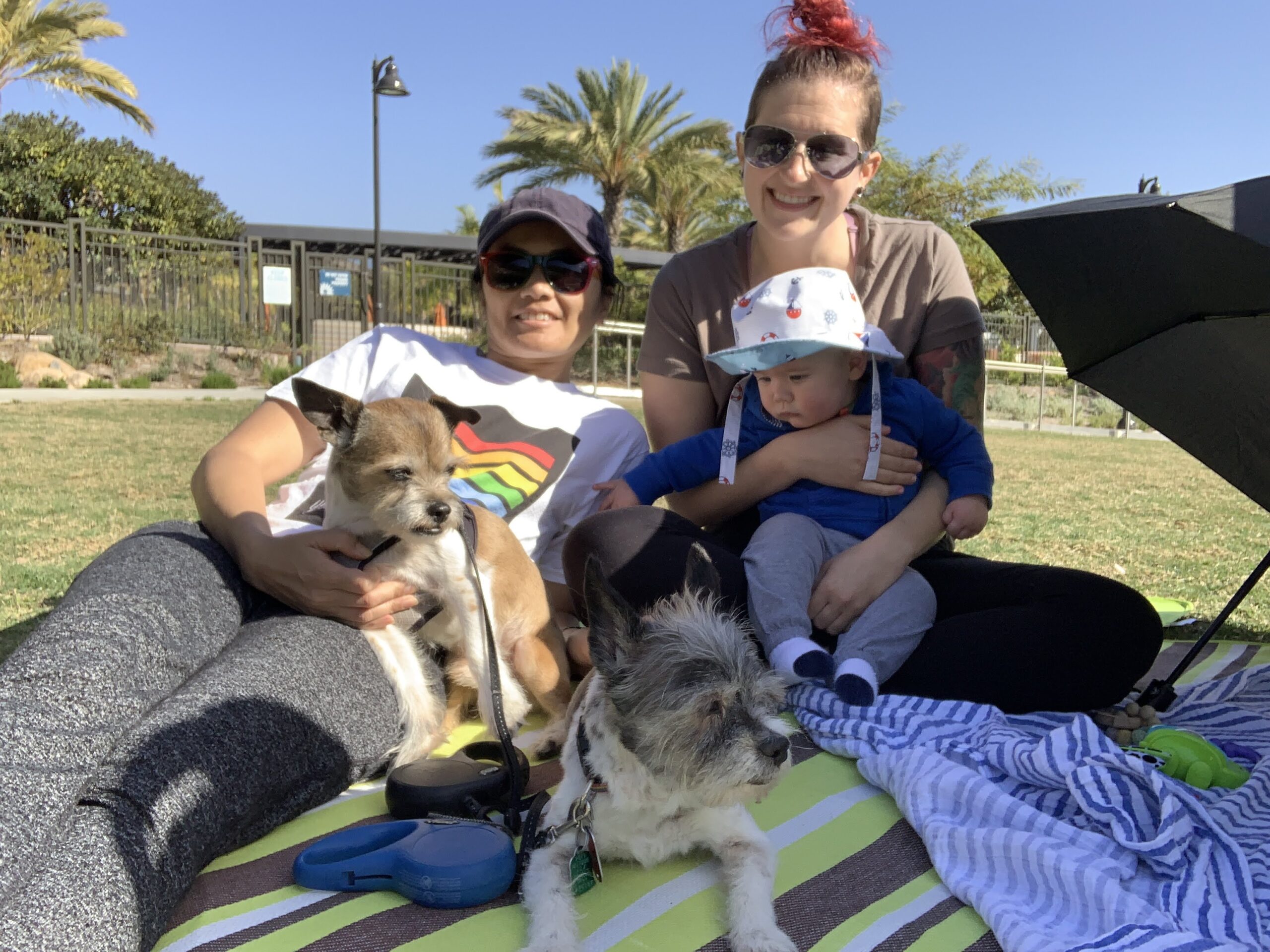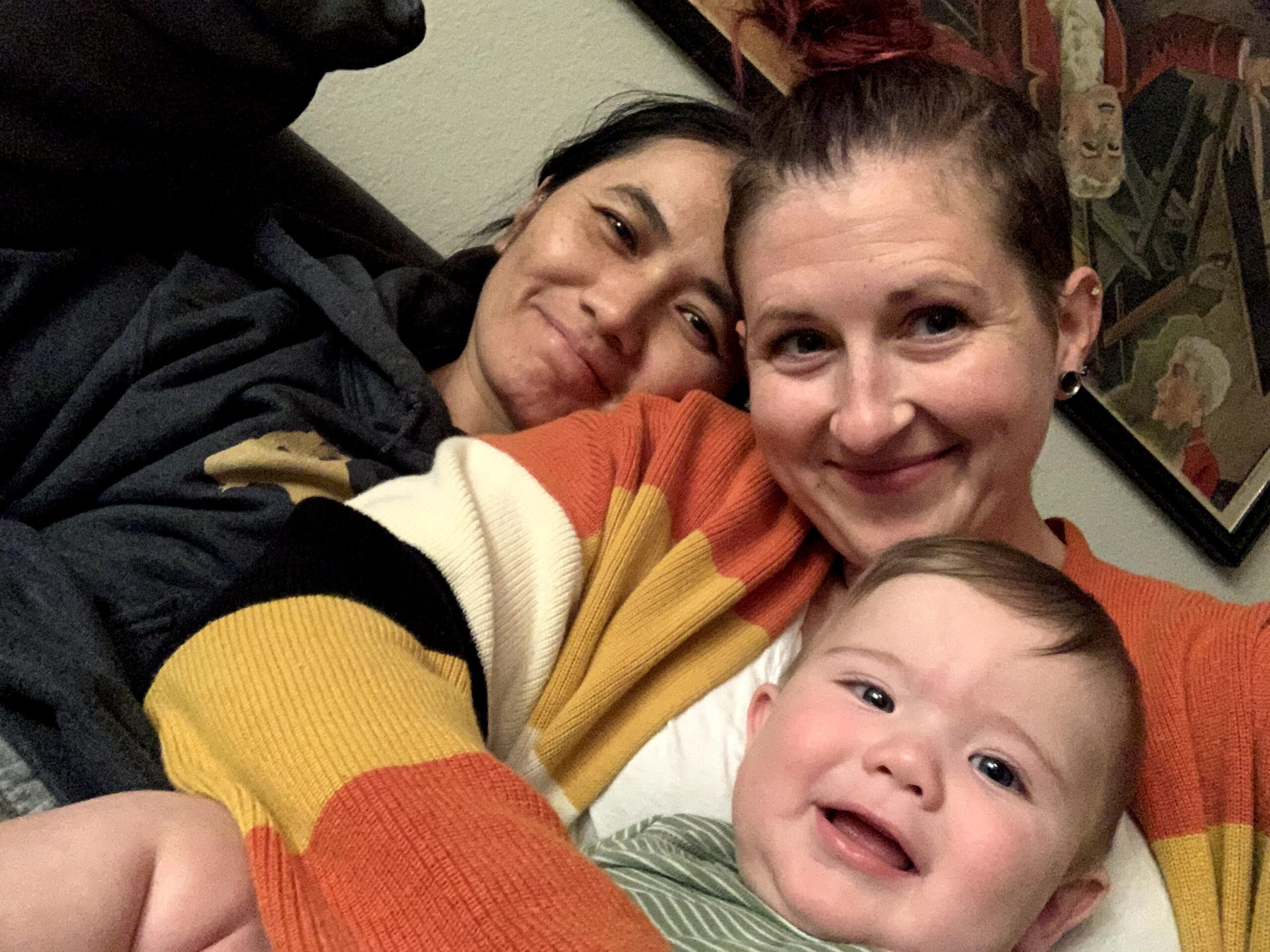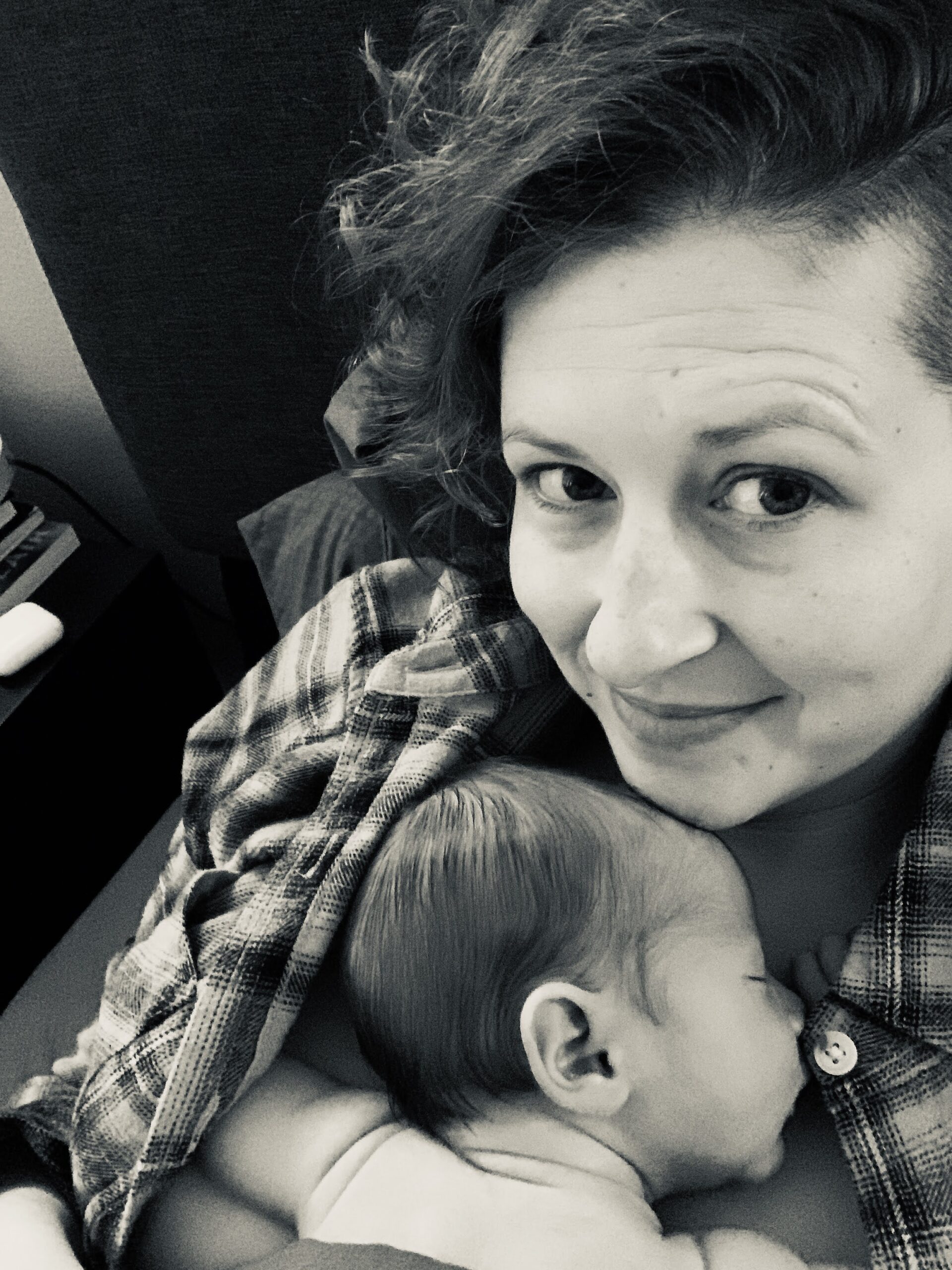Made with a whole lotta love and a little bit of…. Ok, a whole lotta science too!
By: Erin Brzezinski
For some, growing their family can be as simple as having sex and getting pregnant. For others the path is covered in obstacles. My wife and I went into this thinking all we’d need is a little sperm but we would come to find out we needed a lot more!
Our story is shorter than some and longer than others. It’s full of bills, injections, tears, heartbreak, frustration, hateful/ignorant comments, and watching others celebrate the joy we wanted to experience. However, it is also full of love, kindness, support, and a marriage that was strengthened along the way.
For me, it is easier to summarize it all in bullet points:
March 2017-January 2019
- Met with civilian doctors for preliminary tests and 2 mandatory psychological assessments.
- Randomly heard about a fertility clinic at the military treatment facility (MTF) where we were stationed and switched over.
- Underwent countless pokes, prods, and procedures that resulted in 6 unsuccessful Intrauterine Insemination (IUI) procedures and 1 unsuccessful In Vitro Fertilization (IVF) procedure.
- Read Michelle Obama’s book,”Becoming”, and learned she also underwent IVF. Found empathy and strength to keep going.
- Worked with a fertility acupuncturist and ended up meeting the most incredible, strong, remarkable women through an infertility support group. I still keep in touch with them today.
- Diagnosed with unexplained infertility and told my wife was “too old” to get pregnant at 40.
We left our duty station feeling broken, angry, and like we had few, if any, options. Our glimmer of hope was that our next duty station had a fertility clinic with positive reviews. So, like the bracelet said that I received from my dear friend, we had to “keep f**cking going.”
January 2019 – December 2019
- Met with new military doctors, new pokes, new prods, new heartbreaks.
- Learned about embryo donation. It is common for people to have leftover embryos after completing an IVF procedure. There are a couple of options on what to do with leftover embryos, one is donation.
- Experienced discrimination. Some agencies prohibit donations to LGBTQ+ people. It got to the point that I was not sure I could handle anymore disappointment and heartbreak. Thankfully our local fertility clinic, partnered with the MTF, worked with us to find matches. Donors could still elect not to donate to LGBTQ+ people; however, the clinic filtered them out for us.
- Next came 3 failed embryo donation matches and more tears. We were ecstatic when we finally matched with someone. However, our journey was far from over, cue the legal hurdles!
- After months of back and forth, we had a signed Embryo Donation Agreement. This meant that we could FINALLY get an embryo transfer scheduled.
- On December 21, 2019, after 2 years, 8 months, and 2 weeks of trying I was finally pregnant! I would call my wife, who had been at sea for months, to tell her the words we had waited so long to hear: ”You are going to be a mommy!”
We welcomed our son into the world August 2020. My wife was on a video chat watching because she was deployed again. Having him is the most precious, wonderful, beautiful, unbelievable thing that has ever happened to us.
I truly hope, with my whole heart, that those ready to grow their family have a simple and easy journey. I hope your first attempt is a successful attempt! However, if it is not, please know that you are not alone. I know how lonely it can feel, how hopeless and devastating, how much blame you may put on yourself. No matter your journey, I recommend connecting with people who support you the way you need and want to be supported. I know I am grateful for my wife who kept the hope for both of us, even when it felt impossible.
Our first step was to ask questions and find answers. Do research about insurance, clinics, resources, legal matters, and what options are available. Assemble your list of questions and chat with your primary care provider to establish next steps.
I also highly recommend finding and establishing a support network of people going through a similar experience. The women from my infertility group were and continue to be invaluable to me. Our friends and family have been critical in mourning our losses and celebrating our victories. I have been in and out of various social networking groups based on where we were in our journey. It is okay to ask for help; and it is okay to not be okay.
From my little family to yours: we are so excited for you to start your journey and we are sending you all our love and best wishes!




